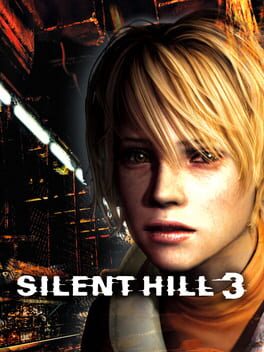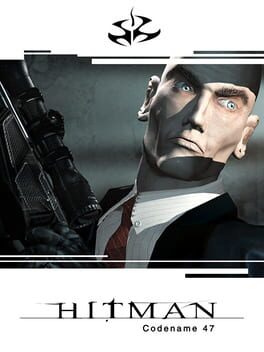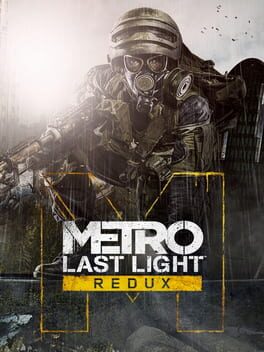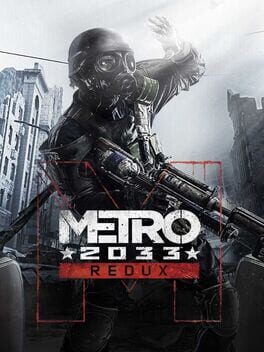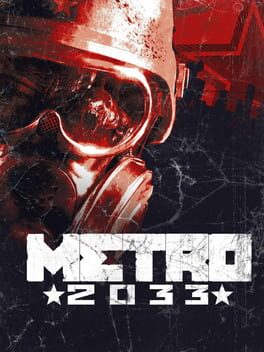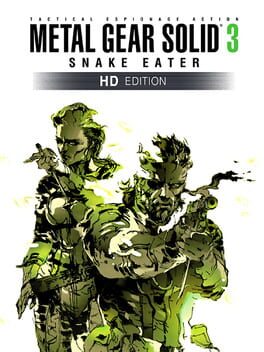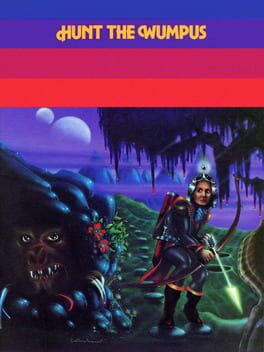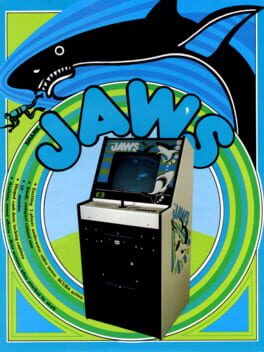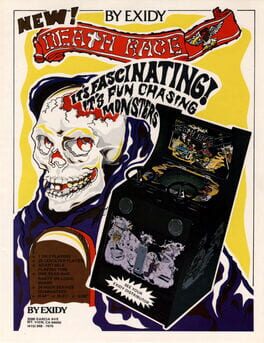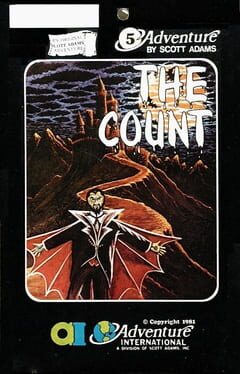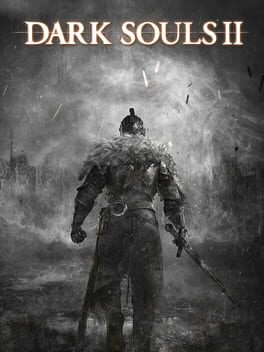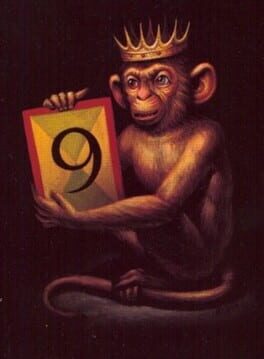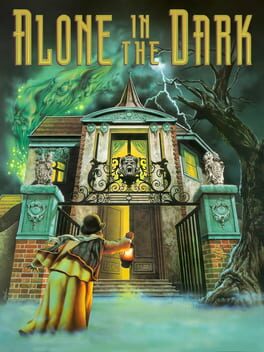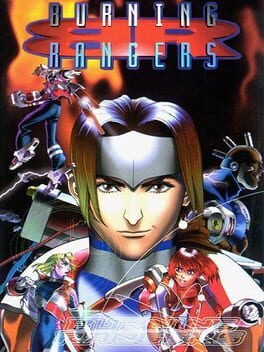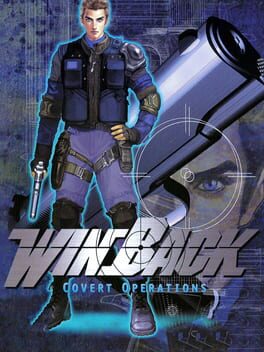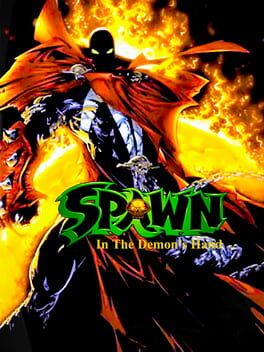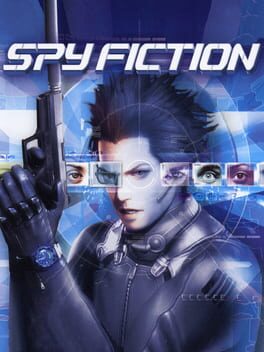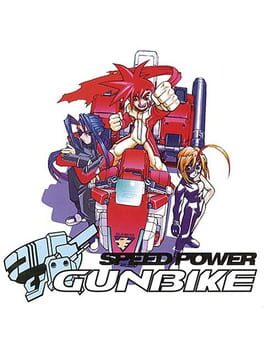Paoxy
21 reviews liked by Paoxy
Silent Hill 3
2003
trades subtlety for arguably having far and away the most intense atmosphere of the first three games; viscerally terrifying. the sound design here is exceptional to the point where many sounds made me think they were coming from somewhere besides my headphones. environment design is much more consistently surreal here than it was in 1-2. 1's otherworld was [to memory] exclusively abandoned fogworld contrasted with rusted red metal otherworld while 2 had some standout otherworld areas in basically the entire portion of the game beginning at the Historical Society and ending at the voyage to Lakeview. 3's environments, however, beginning around a third of the way through the game are unafraid of having utterly nonsensical geometry for large portions of their levels. several entire levels are dubious in their status as a mirror of some real world location.
by the artifice of level design which i cannot hope to understand, or by a difference in mood, i found myself actually seeking to avoid many encounters to either conserve resources or because i was actually scared. that is to say: unlike 1-2, 3 has what you would expect a survival horror game to have, or so i've been told.
so about that lack of subtlety: firstly, much of the horror elements are a bit over the top, the blood-stained amusement park mascots being emblematic of this, and secondly, the writing, while still having the awkwardness signature to the series, feels almost amateurish in how exaggerated it is at times, despite having the same writer as 2. this isn't per se an issue, perhaps it's a reflection of Heather's being a teenager, but there is less naturalism this time around, at the very least.
what is an issue however is the handling of theme towards the very end of the game: Heather and Douglas each have uncharacteristic rants about how bad religion is as if this theme was not obvious up to this point. i don't disagree with the sentiment, it is just that it is expressed with the grace of an r/atheist tipping their fedora in euphoria, and you are hearing the voice of the writer rather than the character the entire time.
by the artifice of level design which i cannot hope to understand, or by a difference in mood, i found myself actually seeking to avoid many encounters to either conserve resources or because i was actually scared. that is to say: unlike 1-2, 3 has what you would expect a survival horror game to have, or so i've been told.
so about that lack of subtlety: firstly, much of the horror elements are a bit over the top, the blood-stained amusement park mascots being emblematic of this, and secondly, the writing, while still having the awkwardness signature to the series, feels almost amateurish in how exaggerated it is at times, despite having the same writer as 2. this isn't per se an issue, perhaps it's a reflection of Heather's being a teenager, but there is less naturalism this time around, at the very least.
what is an issue however is the handling of theme towards the very end of the game: Heather and Douglas each have uncharacteristic rants about how bad religion is as if this theme was not obvious up to this point. i don't disagree with the sentiment, it is just that it is expressed with the grace of an r/atheist tipping their fedora in euphoria, and you are hearing the voice of the writer rather than the character the entire time.
Silent Hill 2
2001
Silent Hill 2
2001
I won't ever call this game bad because of the level of creativity in both the music and the story concepts, especially for the time it was made. However, this game is EXTREMELY overrated in modern times, and frankly, the game is not good enough to warrant it getting even close to 4 or 5 stars. The acting is still stilted and funny most of the time, the gameplay whether it's intentional or not is still clunky and weird, and these things makeup the entire game. Despite that it still has so many interesting aspects that draw people to it and that's why I would still consider it worth playing, but thinking this game rivals any other game worth a 4 star rating is absurd. Worth playing for its tons of potential and creativity, but overall execution leaves something to be desired.
Hitman: Codename 47
2000
Codename 47 is the first entry in the Hitman franchise, renowned for being probably the best stealth franchise to ever exist. Does this game live up to that reputation though?
No. (lol)
It's still a fun time especially during the earlier missions and the Thermal Bath Hotel mission, which also happens to be the best in the game, however the experience is marred by inconsistent AI, noticing you from OUTSIDE OF THE DRAW DISTANCE in some missions even, like the Say Hello to My Little Friend mission and Plutonium Runs Loose (which is probably the worst mission in the entire franchise) and a lack of a limited save system within missions like future entries, forcing you to restart from the very beginning when you fail. Yes, not IF you fail... WHEN you fail, because you will. Some missions hit you with extremely punishing knowledge checks that you would've had no way of knowing on your first playthrough but the game punishes you for that regardless.
The fundamentals that the franchise was built upon are all here and this game will forever be respected for starting it, but pretty much every other game in the series is better.
The one thing that I can't criticize is the insanely atmospheric soundtrack composed by Jesper Kyd, also known for his work on some of the Assassin's Creed franchise.
Overall, it's a decent time but it has aged pretty poorly and you do have to play through the game once to be aware of all of the knowledge checks, it makes latter playthroughs much smoother and less frustrating.
No. (lol)
It's still a fun time especially during the earlier missions and the Thermal Bath Hotel mission, which also happens to be the best in the game, however the experience is marred by inconsistent AI, noticing you from OUTSIDE OF THE DRAW DISTANCE in some missions even, like the Say Hello to My Little Friend mission and Plutonium Runs Loose (which is probably the worst mission in the entire franchise) and a lack of a limited save system within missions like future entries, forcing you to restart from the very beginning when you fail. Yes, not IF you fail... WHEN you fail, because you will. Some missions hit you with extremely punishing knowledge checks that you would've had no way of knowing on your first playthrough but the game punishes you for that regardless.
The fundamentals that the franchise was built upon are all here and this game will forever be respected for starting it, but pretty much every other game in the series is better.
The one thing that I can't criticize is the insanely atmospheric soundtrack composed by Jesper Kyd, also known for his work on some of the Assassin's Creed franchise.
Overall, it's a decent time but it has aged pretty poorly and you do have to play through the game once to be aware of all of the knowledge checks, it makes latter playthroughs much smoother and less frustrating.
Hitman: Codename 47
2000
Codename 47 is the very first game of the Hitman series that I like a lot but it certainly is a rough entry to it as much as I appreciate it's contributions to the later Hitman games and the gaming as a whole (maybe, with it's ragdoll physics).
The reason I'm calling it a rough entry is entirely due to the execution of it's gameplay mechanics. This game was by far one of the jankiest games I've ever played. The AI is an inconsistent piece of shit. You can do same thing exactly the same way in a level and somehow get through it without any problems while starting to get shot on the other and have no idea why that happened. I was so shocked each time this happened that I was wondering if the AI was sentient or not. Sometimes the AI feels clueless about anything that happens around them and sometimes they have either eyes behind them or they see something bad happening outside the very low rendering distance you have which can lead to very frustrating situations.
The combat doesn't work well due to the fact that for some reason Agent 47 in this game has the aiming capabilities of a stormtrooper even though he is the perfect assassin. The reticle is not at all an indication of where you are going to shoot becuase even if you're only 2 meters away from your target your bullet can completely miss your target which makes it more viable to either spam with your pistol or just use high fire-rate guns and hope your target dies. You could avoid combat like in the later games but I personally dont see it happening with the forementioned AI problems and level design on some of the missions.
Speaking of level design, indoor missions in this game can feel like a maze with how samey rooms and halls look like and outdoor missions are so big and empty that you can easily get lost due to low render distance. I will talk about some of the levels that I want to particularly talk about later.
All of these would still make the game very playable but there is one last problem that amplifies the problems above, there isn't a save system. Lack of a save system means you could progress far in a complex, long or a big level but one bullshit with the weird AI might mean it's all moot, you are restarting the level. I don't know if this actually true but I've heard the playtesters of this game managed to beat the game very quickly with save files so that's why the devs removed it which seems insane to me because I absolutely don't see how you can beat this game quickly without actually knowing what to do since the game doesn't hold your hand at all but at the same time I find it equally baffling how the devs decide to not add save files otherwise.
All of these complaints are the reason I actually dropped this game midway through the first time then finished it after playing all other Hitman games but the non-gameplay stuff is actually nice. In the current gaming climate where there are way too many remakes and remasters which I hate a lot, Codename 47 is the only game that I would like the see a remake of (Contracts levels don't count) due to these non-gameplay stuff actually being very promising. Most coherent plot of the franchise, Ort-Meyer is the best villain this series has to offer (Both points don't actually seem that impressive when you think about it) and I would like to see it more expanded in a potential remake. Missions have good premises which isn't executed this well with the level design but I think IOI can do them justice if they don't make it outright worse like some of the Contracts remakes. Jesper Kyd's music is as good as always. And that's it I think.
Now let's talk about the missions that I feel like there are things worth to talk about:
The Massacre at Cheung Chau Fish Restaurant: 4th overall mission of the game, this was actually the mission I dropped the game first time I played because it's the first mission the very perceptive civilians outright failing the level impacts you. After actually finishing it, I think it's a neat mission. It's on the more creative sides of the missions in Codename 47 and it has the most iconic line of the franchise.
The Lee Hong Assassination: 5th overall mission and the last of the Hong Kong missions, probably the most complex mission of Codename 47 but also one of my two favorite missions in it. You'd think with how long the mission actually is, no save system would take a lot from it due to janky gameplay mechanics but the mission actually flows very well. Everything leads to each other with the information you can get from NPCs. Also I felt like the AI in this mission isn't that problematic.
Find the Uwa Tribe: First Colombian mission, this is the worst mission in the game if you don't consider the gameplay. Racial insensivities aside the level itself is a gigantic empty jungle you can easily get lost and the level itself is mostly just running around it for 15 minutes. Thankfully the game has a compass you can buy so you don't have to check the map every 5 seconds.
Say Hello to My Little Friend: Final Colombian mission where you kill a discount Al Pacino is a big offender of the gameplay jank I talked about before. The first baffling thing about this level is the gigantic walk you have to do get inside the big campsite because for some reason the devs decided it was a good idea to spawn you on the other side of the entrance of it. On top of that this mission is the biggest offender of the inconsistent AI (especially around the lab) so have fun taking the walk of shame when the game feels like it.
Traditions of the Trade: My other favorite mission of the game takes place in a Hungarian hotel. Once again the mission is once again good at giving information via NPCs and also the level itself is the most non-linear mission Codename 47 has to offer which I think is the reason why I feel like you could put this mission as is on any of the future pre-Absolution games and you wouldn't bat an eye.
Plutonium Runs Loose: Now the real worst mission of the game, 11th overall mission and the final mission of Rotterdam. I think most players who played this game will also tell you how awful and frustrating this mission is. Much like Say Hello to My Little Friend, this mission also suffers from the inconsistent AI and the huge walking and waiting times it has. On top of that the level forces you into combat with how it's designed and the non-combat stuff you need to do on the level is much riskier which leads you into much more failures in this huge level in a game with no save system. Seriously, fuck this level.
Meet Your Brother: Final mission of the game is a combat level, which the Hitman series actually really likes to do a lot in their final missions even in the future games. As much as the concept of this one goes I think it's one of the better final missions of the series. The real problem with this level is that the combat mechanics of the game forces you to just wait in a corner and kill your targets one by one which takes a long and mundane time. The two (!!) instant kill mechanics you can be hit by after you do that is downright evil.
As much as how frustrating this game can get I think I'd still recommend it to a Hitman fan that wants to play pre-WoA/Absolution/Blood Money Hitman games and at least try it out. I personally didn't have the patience to finish it the first time around and moved onto 2: Silent Assassin instead which I think is also fine to do.
The reason I'm calling it a rough entry is entirely due to the execution of it's gameplay mechanics. This game was by far one of the jankiest games I've ever played. The AI is an inconsistent piece of shit. You can do same thing exactly the same way in a level and somehow get through it without any problems while starting to get shot on the other and have no idea why that happened. I was so shocked each time this happened that I was wondering if the AI was sentient or not. Sometimes the AI feels clueless about anything that happens around them and sometimes they have either eyes behind them or they see something bad happening outside the very low rendering distance you have which can lead to very frustrating situations.
The combat doesn't work well due to the fact that for some reason Agent 47 in this game has the aiming capabilities of a stormtrooper even though he is the perfect assassin. The reticle is not at all an indication of where you are going to shoot becuase even if you're only 2 meters away from your target your bullet can completely miss your target which makes it more viable to either spam with your pistol or just use high fire-rate guns and hope your target dies. You could avoid combat like in the later games but I personally dont see it happening with the forementioned AI problems and level design on some of the missions.
Speaking of level design, indoor missions in this game can feel like a maze with how samey rooms and halls look like and outdoor missions are so big and empty that you can easily get lost due to low render distance. I will talk about some of the levels that I want to particularly talk about later.
All of these would still make the game very playable but there is one last problem that amplifies the problems above, there isn't a save system. Lack of a save system means you could progress far in a complex, long or a big level but one bullshit with the weird AI might mean it's all moot, you are restarting the level. I don't know if this actually true but I've heard the playtesters of this game managed to beat the game very quickly with save files so that's why the devs removed it which seems insane to me because I absolutely don't see how you can beat this game quickly without actually knowing what to do since the game doesn't hold your hand at all but at the same time I find it equally baffling how the devs decide to not add save files otherwise.
All of these complaints are the reason I actually dropped this game midway through the first time then finished it after playing all other Hitman games but the non-gameplay stuff is actually nice. In the current gaming climate where there are way too many remakes and remasters which I hate a lot, Codename 47 is the only game that I would like the see a remake of (Contracts levels don't count) due to these non-gameplay stuff actually being very promising. Most coherent plot of the franchise, Ort-Meyer is the best villain this series has to offer (Both points don't actually seem that impressive when you think about it) and I would like to see it more expanded in a potential remake. Missions have good premises which isn't executed this well with the level design but I think IOI can do them justice if they don't make it outright worse like some of the Contracts remakes. Jesper Kyd's music is as good as always. And that's it I think.
Now let's talk about the missions that I feel like there are things worth to talk about:
The Massacre at Cheung Chau Fish Restaurant: 4th overall mission of the game, this was actually the mission I dropped the game first time I played because it's the first mission the very perceptive civilians outright failing the level impacts you. After actually finishing it, I think it's a neat mission. It's on the more creative sides of the missions in Codename 47 and it has the most iconic line of the franchise.
The Lee Hong Assassination: 5th overall mission and the last of the Hong Kong missions, probably the most complex mission of Codename 47 but also one of my two favorite missions in it. You'd think with how long the mission actually is, no save system would take a lot from it due to janky gameplay mechanics but the mission actually flows very well. Everything leads to each other with the information you can get from NPCs. Also I felt like the AI in this mission isn't that problematic.
Find the Uwa Tribe: First Colombian mission, this is the worst mission in the game if you don't consider the gameplay. Racial insensivities aside the level itself is a gigantic empty jungle you can easily get lost and the level itself is mostly just running around it for 15 minutes. Thankfully the game has a compass you can buy so you don't have to check the map every 5 seconds.
Say Hello to My Little Friend: Final Colombian mission where you kill a discount Al Pacino is a big offender of the gameplay jank I talked about before. The first baffling thing about this level is the gigantic walk you have to do get inside the big campsite because for some reason the devs decided it was a good idea to spawn you on the other side of the entrance of it. On top of that this mission is the biggest offender of the inconsistent AI (especially around the lab) so have fun taking the walk of shame when the game feels like it.
Traditions of the Trade: My other favorite mission of the game takes place in a Hungarian hotel. Once again the mission is once again good at giving information via NPCs and also the level itself is the most non-linear mission Codename 47 has to offer which I think is the reason why I feel like you could put this mission as is on any of the future pre-Absolution games and you wouldn't bat an eye.
Plutonium Runs Loose: Now the real worst mission of the game, 11th overall mission and the final mission of Rotterdam. I think most players who played this game will also tell you how awful and frustrating this mission is. Much like Say Hello to My Little Friend, this mission also suffers from the inconsistent AI and the huge walking and waiting times it has. On top of that the level forces you into combat with how it's designed and the non-combat stuff you need to do on the level is much riskier which leads you into much more failures in this huge level in a game with no save system. Seriously, fuck this level.
Meet Your Brother: Final mission of the game is a combat level, which the Hitman series actually really likes to do a lot in their final missions even in the future games. As much as the concept of this one goes I think it's one of the better final missions of the series. The real problem with this level is that the combat mechanics of the game forces you to just wait in a corner and kill your targets one by one which takes a long and mundane time. The two (!!) instant kill mechanics you can be hit by after you do that is downright evil.
As much as how frustrating this game can get I think I'd still recommend it to a Hitman fan that wants to play pre-WoA/Absolution/Blood Money Hitman games and at least try it out. I personally didn't have the patience to finish it the first time around and moved onto 2: Silent Assassin instead which I think is also fine to do.
Igual ao primeiro, checkpoints ruins, momentos que a atmosfera é de stealth, mas a intenção é ser Call of duty por que o stealth é terrível, mas ainda sim o jogo brilha muito nas partes de sobrevivência contra os monstros.
Triste como o jogo de novo começa bem e fica genérico de novo.
Decepcionadíssimo com os jogos da série Metro...
Triste como o jogo de novo começa bem e fica genérico de novo.
Decepcionadíssimo com os jogos da série Metro...
Metro 2033 Redux
2014
i just finished this game and i feel like it had very boring begining. Second part of the game is actually pretty decent for its limits. I know this game was extremely hard to make but i overall think its average. Optimization was suprisingly bad, i didnt know where to go in some levels. Other things like shooting feeling, enemy ai was not good. But the atmosphere, the world was really good built. Its really hard to make this kind of game so they are also getting shoutout from me.
Metro 2033
2010
does anyone think kojima really needed to justify the original mgs trilogy? the chronology between the games is there, but the actual on-going narrative shifts significantly to suit the nature of each game. sewn together by thematic musings yet environmentally distinct, those games crafted their own internal worlds to convey the kinds of story they wanted to tell. video games have traditionally favored self-contained works given both the density of any given game and the need to make any entry a boarding point for new fans, which makes mgs4 all the more puzzling. in likely the only time kojima was truly convinced that he was ending the series, he attempted to string together literally every plot point leftover from prior games into a single nonsensical story as if that's what the series needed. as if some hackneyed sense of closure for each and every character could somehow weave its own web of meaning instead of stumbling so heavily over its own feet.
believe or not it's truly an "everyone is here" moment. meryl? back as a grizzled vet, far from the fresh recruit she was in the first game. olga gurlukovich's daughter kidnapped by the patriots? living with otacon aboard his plane/house/thing. EVA, last seen escaping with the philosopher's legacy in the mid '60s? she's here with her own resistance group and she has virtually no backstory as for why. the guard who shits himself in mgs1 and 2? he gets a name! so many characters from those first three games tumble back into view that it strangles the new additions to the franchise. weapon launderer drebin and his cola-swilling monkey companion rarely solidify their presence beyond justifying the new weapons system, and in particular drebin's suit coat and baggy camo pants locks this into being easily the most 00s mgs ever got. the other new players - the beauty and the beast unit - may be easily the least interesting boss set in the franchise (not that pw or V even really attempt one), especially with drebin's trauma porn backstory dumps for each one. virtually no agency beyond just fusing previous ideas together into some new package. a bit of a microcosm for the rest of the game!
indeed, mgs4's mechanics falter immediately from refusing to build on mgs3's foundation in favor of blending various bits from it and the various third-person shooters from its orbit. this was a post-gears world after all, and a post-modern warfare one as well. the core conceit of mgs4 lies in recreating perpetual war and placing the player as a third party within it, uninvolved in the conflict and attempting to remain unobtrusive. from the moment snake enters the bombed-out ruins of a middle-eastern city it becomes clear that the nature of the classic mgs stealth gameplay has changed. while some soldiers patrol previously-cleared areas, the vast majority of their forces press on towards the front against hostile militias. getting noticed has negative consequences per usual, but in the midst of already-heavy fire simply eliminating a guard and returning to the shadows rarely results in a reset or any major setbacks. in fact, assisting the militia from behind their lines will result in them viewing you as an alley and ignoring your trespassing. in this way the game pushes the player towards more traditional cover-TPS gameplay, with stealth more of a tool than a central gameplay mechanic. while avoiding detection may result overall safer gameplay, it is generally to your benefit to pick off enemy soldiers regardless, and in some instances the combatants are so distracted by the ongoing battle that sneaking past rarely poses an issues. this initial chapter does feature the most raw stealth sequences of the entire game, but juxtaposes this against a straight-forward combat encounter with the haven troopers (otherwise known as the FROGS), which kill the pacing just like similar segments such as the elevator fight from mgs1.
these latter warfare mechanics present themselves more heavily in the game's second chapter, which takes place in south america. should the player squint, they may be able to trick themselves that they're playing a gussied-up version of snake eater thanks to the similar methods of crawling through tall grass in the wetlands that seem particularly useful here. when not in combat, snake has a couple new options for tactical disposal of enemies. the one I found most useful was the metal gear mk ii; this petite cameo from snatcher can roll up on unsuspecting enemies and electrocute them for easy takedowns so long as you yourself aren't caught controlling it like a sitting duck. unfortunately as this chapter rolls on it leans even further into neglecting the stealth altogether, with setpieces such as the mansion really making it clear that getting caught simply doesn't matter in a warzone. at the same time this is the chapter where I really started enjoying the combat for what it was. via drebin snake can purchase weapons at will from a menu outside the purview of the patriots, and ammo refills are easy to buy as well. fooling around with weapons such as the automatic sniper rifle or the nonlethal air shotgun honestly made up for the lack of usual MGS-gameplay. it's evident that kojima was chasing trends with this style, but I can't say he didn't manage to make it work.
which makes the third chapter (and indeed, the rest of the game) all the more perplexing. the setting shifts to eastern europe, where snake must trail local revolutionaries back to their base through dimly lit cobblestone streets. a far cry from the earlier segments though certainly not as bad as it could be. the interesting twist here is that your targets are themselves sneaking around soldiers under the banner of the patriots, and occasionally snake needs to step in to tip the scales in the resistance's favor. discretely handling these close calls for the resistance makes what would otherwise be purely tedious at least somewhat interesting. the second half of this chapter is effectively a protracted light-gun sequence (there's one in the second chapter as I recall), which certainly is an mgs staple but perhaps could have been not been featured so prominently here. virtually no traditional mgs action happens in this chapter, portending the shift the rest of the game takes.
the fourth chapter features a return to shadow moses... at this point the game hits a particular low. the various gekko machines are your main foes for most of these chapters, making the actual "stealth" simply tossing chaff grenades and running like hell. other than plenty of winking otacon conversations about the events of the first game, I could not tell you really what the actual structure of this level is beyond these perfunctory sneaking sections and a deluge of boss fights towards the end. in this latter half of the game boss fights begin dominating the runtime, and overall I can't say most of them are particularly great. having replayed mgs2 and 3 recently I'll admit that a lot of "classic" mgs boss fights are not particularly interesting (notable exceptions include vulcan raven, fatman, the end, and the boss), and mgs4 really has no key fight to really claim as a standout. crying wolf and vamp in this chapter stand out as some of my least favorite fights in the game -- crying wolf may be the most tiresome sniper fight in the series -- while the penultimate fight of REX vs RAY at least gets major points on pure fun factor. it's more of a setpice than an actual fight, but the carnage is so enthralling and the following outer haven reveal so iconically silly that I can at least point to it as one of my favorite parts of the game.
the final chapter launches snake into the maw of outer haven in order to reach the patriot AIs at its core. the opening area here features one of the largest stealth areas in the whole game, and unfortunately it closes out the typical mgs gameplay for the entire game. my first steps here were fraught with danger however; the stark metallic ship deck features little natural cover or hidey-holes for snake to inhabit. thankfully kojima included a salve: the octocamo. in his attempt to rectify the tedious camo swapping of mgs3, snake here receives a high-tech suit that adapts to his environment like a chameleon (or uh, an octopus). on solid backdrops such as the cool gray of the ship, snake receives such a high camo index that enemy soldiers (the FROGS in this instance) will not be able to recognize him as an intruder even when directly examining him, allowing the player to headshot tranq them at point-blank range. abusing this mechanic while also disposing of the gekkos via the nerve bundle on the side of their organic knees makes this section a cakewalk, assuming that you can maintain your composure when said gekkos tip and spin around on the floor, mooing incessantly.
in the closing scenes snake proceeds to muddle through the screaming mantis fight and wade through hallway after hallway of the obnoxious dwarf gekkos until finally crawling towards the core. in the microwave corridor approaching the AI core, snake crawls on hands and knees basking in the radiation while scenes from his allies valiantly fighting play around him. this wonderful scene and the subsequent climatic battle with liquid ocelot manages to salvage some of the pain of the prior hours. as each subsequent classic mgs theme plays, you truly get the sense that in some ways this could have been a perfect "dream match" blend of mgs staples old and new had it not been burdened by simultaneously serving as the ultimate ending to everything the series had been leading towards.
the feature-length epilogue finally draws these threads to a close centered around a truly ridiculous data dump from a somehow-alive big boss regarding his long-term proxy war with major zero and cipher. while enjoyable in its own way ("snake lived a hard life" still hits really hard), it's clear that whatever rich thematic base that kojima intended for this game has been utterly smothered by too much explaining. too many events that happened off-screen that someone needs to relay to snake, too many double-crosses and twists, and far too many random old elements dragged out far past their expiration date. where are the stakes for snake's mutated FOXDIE virus housed within his cells when you know it won't amount to anything anyway, just like it did at the end of mgs1? why cry for raiden convulsing from needing dialysis for his synthetic blood when you know he'll just show up as a deus ex machina again later? does ocelot's endgame reveal about liquid's consciousness inside of him really enlighten us about his character or flesh out his flimsy rationale for anything he does over the course of this game?
in a series coated in ruminations on legacy, mgs4 seems the most focused on the legacy of the series itself. snake's decaying body, unraveling from his imperfect artificial conception, may be the most evident symbol that metal gear's golden era had passed by. david hayter renders his voice in a particularly uncomfortable gravely tone over the course of the game to the point of smushing his capability to effect anything but a monotone. there's a particularly poignant moment where aboard the USS missouri snake drags on a cigarette, sending him into a heart-wrenching coughing fit that leaves him bent on the floor in near-syncope. his existence may truly be an affront to God (portrayed in the game as hideo kojima himself, unironically (or maybe with a tinge of irony)).
but beyond this seeming need to break out of the restrictions of metal gear, there is little to gleam from mgs4's text that isn't muddled by the overwrought web of plot points. the war economy is profitable but bad? very true, but pretty much on the level of mgs1's "nuclear annihilation is bad" moral. and much like the ultimate verdict on whether love can bloom on the battlefield -- snake intones during mgs2 that his whirlwind romance with meryl wasn't built to last -- mgs4 doesn't seem very intent on exploring anything it brings up. that worked for mgs1, but mgs4 has nearly 10 hours of cutscenes; twice as long as mgs2 or mgs3. I have a tolerance for metal gear's cheese, but mgs4 really strained me with just how much needless fluff, bug-eyed callbacks, and empty soliloquies it crammed into the chassis of a game that wasn't up to snuff to the series' earlier outings. for how bombastic of a finale this was supposed to be, it's easy to also see how the formerly-innovative mgs resorted to trend-chasing with this entry. shoving a pointless psyche meter in the game or the usual exclamation point guard reactions doesn't change the fact that mgs4 is just another third-person shooter. even when it succeeds at slotting into that classification, it spends the second half of the game grasping at other styles in an attempt to differentiate itself with poor results. there's so much love here, but it still disappoints.
that is, other than the saving grace that is johnny sasaki. what kojima intended to show with this character is redemption for those who have previously failed and embarassed themselves... [the essay continues on from here for another nine paragraphs]
believe or not it's truly an "everyone is here" moment. meryl? back as a grizzled vet, far from the fresh recruit she was in the first game. olga gurlukovich's daughter kidnapped by the patriots? living with otacon aboard his plane/house/thing. EVA, last seen escaping with the philosopher's legacy in the mid '60s? she's here with her own resistance group and she has virtually no backstory as for why. the guard who shits himself in mgs1 and 2? he gets a name! so many characters from those first three games tumble back into view that it strangles the new additions to the franchise. weapon launderer drebin and his cola-swilling monkey companion rarely solidify their presence beyond justifying the new weapons system, and in particular drebin's suit coat and baggy camo pants locks this into being easily the most 00s mgs ever got. the other new players - the beauty and the beast unit - may be easily the least interesting boss set in the franchise (not that pw or V even really attempt one), especially with drebin's trauma porn backstory dumps for each one. virtually no agency beyond just fusing previous ideas together into some new package. a bit of a microcosm for the rest of the game!
indeed, mgs4's mechanics falter immediately from refusing to build on mgs3's foundation in favor of blending various bits from it and the various third-person shooters from its orbit. this was a post-gears world after all, and a post-modern warfare one as well. the core conceit of mgs4 lies in recreating perpetual war and placing the player as a third party within it, uninvolved in the conflict and attempting to remain unobtrusive. from the moment snake enters the bombed-out ruins of a middle-eastern city it becomes clear that the nature of the classic mgs stealth gameplay has changed. while some soldiers patrol previously-cleared areas, the vast majority of their forces press on towards the front against hostile militias. getting noticed has negative consequences per usual, but in the midst of already-heavy fire simply eliminating a guard and returning to the shadows rarely results in a reset or any major setbacks. in fact, assisting the militia from behind their lines will result in them viewing you as an alley and ignoring your trespassing. in this way the game pushes the player towards more traditional cover-TPS gameplay, with stealth more of a tool than a central gameplay mechanic. while avoiding detection may result overall safer gameplay, it is generally to your benefit to pick off enemy soldiers regardless, and in some instances the combatants are so distracted by the ongoing battle that sneaking past rarely poses an issues. this initial chapter does feature the most raw stealth sequences of the entire game, but juxtaposes this against a straight-forward combat encounter with the haven troopers (otherwise known as the FROGS), which kill the pacing just like similar segments such as the elevator fight from mgs1.
these latter warfare mechanics present themselves more heavily in the game's second chapter, which takes place in south america. should the player squint, they may be able to trick themselves that they're playing a gussied-up version of snake eater thanks to the similar methods of crawling through tall grass in the wetlands that seem particularly useful here. when not in combat, snake has a couple new options for tactical disposal of enemies. the one I found most useful was the metal gear mk ii; this petite cameo from snatcher can roll up on unsuspecting enemies and electrocute them for easy takedowns so long as you yourself aren't caught controlling it like a sitting duck. unfortunately as this chapter rolls on it leans even further into neglecting the stealth altogether, with setpieces such as the mansion really making it clear that getting caught simply doesn't matter in a warzone. at the same time this is the chapter where I really started enjoying the combat for what it was. via drebin snake can purchase weapons at will from a menu outside the purview of the patriots, and ammo refills are easy to buy as well. fooling around with weapons such as the automatic sniper rifle or the nonlethal air shotgun honestly made up for the lack of usual MGS-gameplay. it's evident that kojima was chasing trends with this style, but I can't say he didn't manage to make it work.
which makes the third chapter (and indeed, the rest of the game) all the more perplexing. the setting shifts to eastern europe, where snake must trail local revolutionaries back to their base through dimly lit cobblestone streets. a far cry from the earlier segments though certainly not as bad as it could be. the interesting twist here is that your targets are themselves sneaking around soldiers under the banner of the patriots, and occasionally snake needs to step in to tip the scales in the resistance's favor. discretely handling these close calls for the resistance makes what would otherwise be purely tedious at least somewhat interesting. the second half of this chapter is effectively a protracted light-gun sequence (there's one in the second chapter as I recall), which certainly is an mgs staple but perhaps could have been not been featured so prominently here. virtually no traditional mgs action happens in this chapter, portending the shift the rest of the game takes.
the fourth chapter features a return to shadow moses... at this point the game hits a particular low. the various gekko machines are your main foes for most of these chapters, making the actual "stealth" simply tossing chaff grenades and running like hell. other than plenty of winking otacon conversations about the events of the first game, I could not tell you really what the actual structure of this level is beyond these perfunctory sneaking sections and a deluge of boss fights towards the end. in this latter half of the game boss fights begin dominating the runtime, and overall I can't say most of them are particularly great. having replayed mgs2 and 3 recently I'll admit that a lot of "classic" mgs boss fights are not particularly interesting (notable exceptions include vulcan raven, fatman, the end, and the boss), and mgs4 really has no key fight to really claim as a standout. crying wolf and vamp in this chapter stand out as some of my least favorite fights in the game -- crying wolf may be the most tiresome sniper fight in the series -- while the penultimate fight of REX vs RAY at least gets major points on pure fun factor. it's more of a setpice than an actual fight, but the carnage is so enthralling and the following outer haven reveal so iconically silly that I can at least point to it as one of my favorite parts of the game.
the final chapter launches snake into the maw of outer haven in order to reach the patriot AIs at its core. the opening area here features one of the largest stealth areas in the whole game, and unfortunately it closes out the typical mgs gameplay for the entire game. my first steps here were fraught with danger however; the stark metallic ship deck features little natural cover or hidey-holes for snake to inhabit. thankfully kojima included a salve: the octocamo. in his attempt to rectify the tedious camo swapping of mgs3, snake here receives a high-tech suit that adapts to his environment like a chameleon (or uh, an octopus). on solid backdrops such as the cool gray of the ship, snake receives such a high camo index that enemy soldiers (the FROGS in this instance) will not be able to recognize him as an intruder even when directly examining him, allowing the player to headshot tranq them at point-blank range. abusing this mechanic while also disposing of the gekkos via the nerve bundle on the side of their organic knees makes this section a cakewalk, assuming that you can maintain your composure when said gekkos tip and spin around on the floor, mooing incessantly.
in the closing scenes snake proceeds to muddle through the screaming mantis fight and wade through hallway after hallway of the obnoxious dwarf gekkos until finally crawling towards the core. in the microwave corridor approaching the AI core, snake crawls on hands and knees basking in the radiation while scenes from his allies valiantly fighting play around him. this wonderful scene and the subsequent climatic battle with liquid ocelot manages to salvage some of the pain of the prior hours. as each subsequent classic mgs theme plays, you truly get the sense that in some ways this could have been a perfect "dream match" blend of mgs staples old and new had it not been burdened by simultaneously serving as the ultimate ending to everything the series had been leading towards.
the feature-length epilogue finally draws these threads to a close centered around a truly ridiculous data dump from a somehow-alive big boss regarding his long-term proxy war with major zero and cipher. while enjoyable in its own way ("snake lived a hard life" still hits really hard), it's clear that whatever rich thematic base that kojima intended for this game has been utterly smothered by too much explaining. too many events that happened off-screen that someone needs to relay to snake, too many double-crosses and twists, and far too many random old elements dragged out far past their expiration date. where are the stakes for snake's mutated FOXDIE virus housed within his cells when you know it won't amount to anything anyway, just like it did at the end of mgs1? why cry for raiden convulsing from needing dialysis for his synthetic blood when you know he'll just show up as a deus ex machina again later? does ocelot's endgame reveal about liquid's consciousness inside of him really enlighten us about his character or flesh out his flimsy rationale for anything he does over the course of this game?
in a series coated in ruminations on legacy, mgs4 seems the most focused on the legacy of the series itself. snake's decaying body, unraveling from his imperfect artificial conception, may be the most evident symbol that metal gear's golden era had passed by. david hayter renders his voice in a particularly uncomfortable gravely tone over the course of the game to the point of smushing his capability to effect anything but a monotone. there's a particularly poignant moment where aboard the USS missouri snake drags on a cigarette, sending him into a heart-wrenching coughing fit that leaves him bent on the floor in near-syncope. his existence may truly be an affront to God (portrayed in the game as hideo kojima himself, unironically (or maybe with a tinge of irony)).
but beyond this seeming need to break out of the restrictions of metal gear, there is little to gleam from mgs4's text that isn't muddled by the overwrought web of plot points. the war economy is profitable but bad? very true, but pretty much on the level of mgs1's "nuclear annihilation is bad" moral. and much like the ultimate verdict on whether love can bloom on the battlefield -- snake intones during mgs2 that his whirlwind romance with meryl wasn't built to last -- mgs4 doesn't seem very intent on exploring anything it brings up. that worked for mgs1, but mgs4 has nearly 10 hours of cutscenes; twice as long as mgs2 or mgs3. I have a tolerance for metal gear's cheese, but mgs4 really strained me with just how much needless fluff, bug-eyed callbacks, and empty soliloquies it crammed into the chassis of a game that wasn't up to snuff to the series' earlier outings. for how bombastic of a finale this was supposed to be, it's easy to also see how the formerly-innovative mgs resorted to trend-chasing with this entry. shoving a pointless psyche meter in the game or the usual exclamation point guard reactions doesn't change the fact that mgs4 is just another third-person shooter. even when it succeeds at slotting into that classification, it spends the second half of the game grasping at other styles in an attempt to differentiate itself with poor results. there's so much love here, but it still disappoints.
that is, other than the saving grace that is johnny sasaki. what kojima intended to show with this character is redemption for those who have previously failed and embarassed themselves... [the essay continues on from here for another nine paragraphs]
I'm truly divided on how to rate this game.
While I admit to feeling not as hooked (at times even uninterested), and was only sorta hooked during the climax, the epilogue was beautiful and impactful. So an otherwise 6.5-7 experience, was rescued by the epilogue.
Most characters were a mixed bag as well. While The Boss was easily my favorite.
The Lore and the Universe (or rather the backstory is laid out really well)
It is also clear that MGS 3 is the more "raw" game in the series. Running more on the feels, than the "idea" template kojima presents. Its not overly indulgent Kojima, but it's not fully crazy either till the end. Its a mix of the best gaming moments and absolutely mediocre campaign game ones. An involving narrative which doesn't necessarily keep u hooked and vice versa. An Intelligent and thought provoking story told in an at times dull/camp-driven way. Awesome moments wrapped around with mediocre ones. This game is a must play, but I think its slightly overrated (which made me too hyped and dropped the score down). Like all the other MGS games.
While I admit to feeling not as hooked (at times even uninterested), and was only sorta hooked during the climax, the epilogue was beautiful and impactful. So an otherwise 6.5-7 experience, was rescued by the epilogue.
Most characters were a mixed bag as well. While The Boss was easily my favorite.
The Lore and the Universe (or rather the backstory is laid out really well)
It is also clear that MGS 3 is the more "raw" game in the series. Running more on the feels, than the "idea" template kojima presents. Its not overly indulgent Kojima, but it's not fully crazy either till the end. Its a mix of the best gaming moments and absolutely mediocre campaign game ones. An involving narrative which doesn't necessarily keep u hooked and vice versa. An Intelligent and thought provoking story told in an at times dull/camp-driven way. Awesome moments wrapped around with mediocre ones. This game is a must play, but I think its slightly overrated (which made me too hyped and dropped the score down). Like all the other MGS games.
4 lists liked by Paoxy
